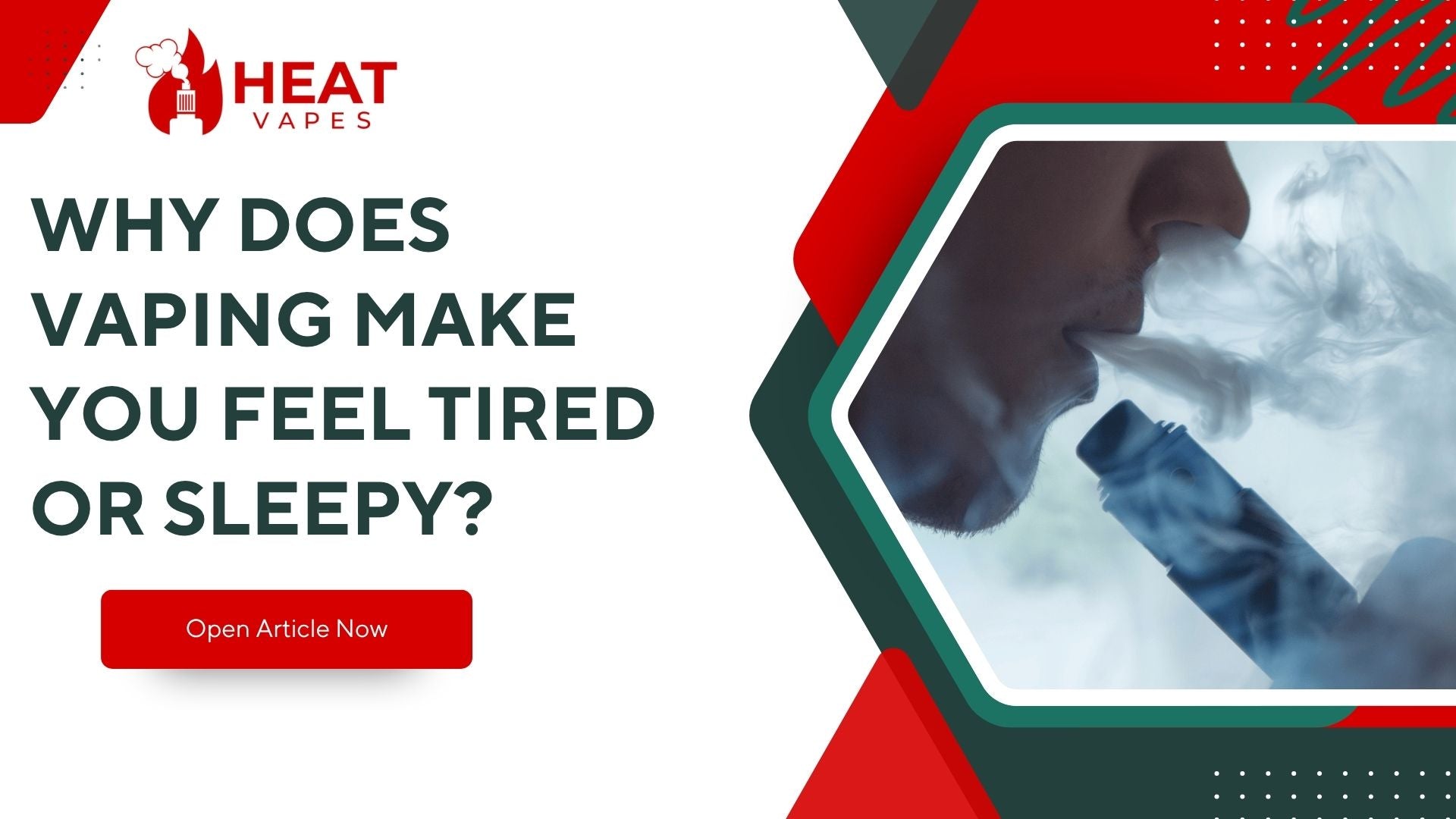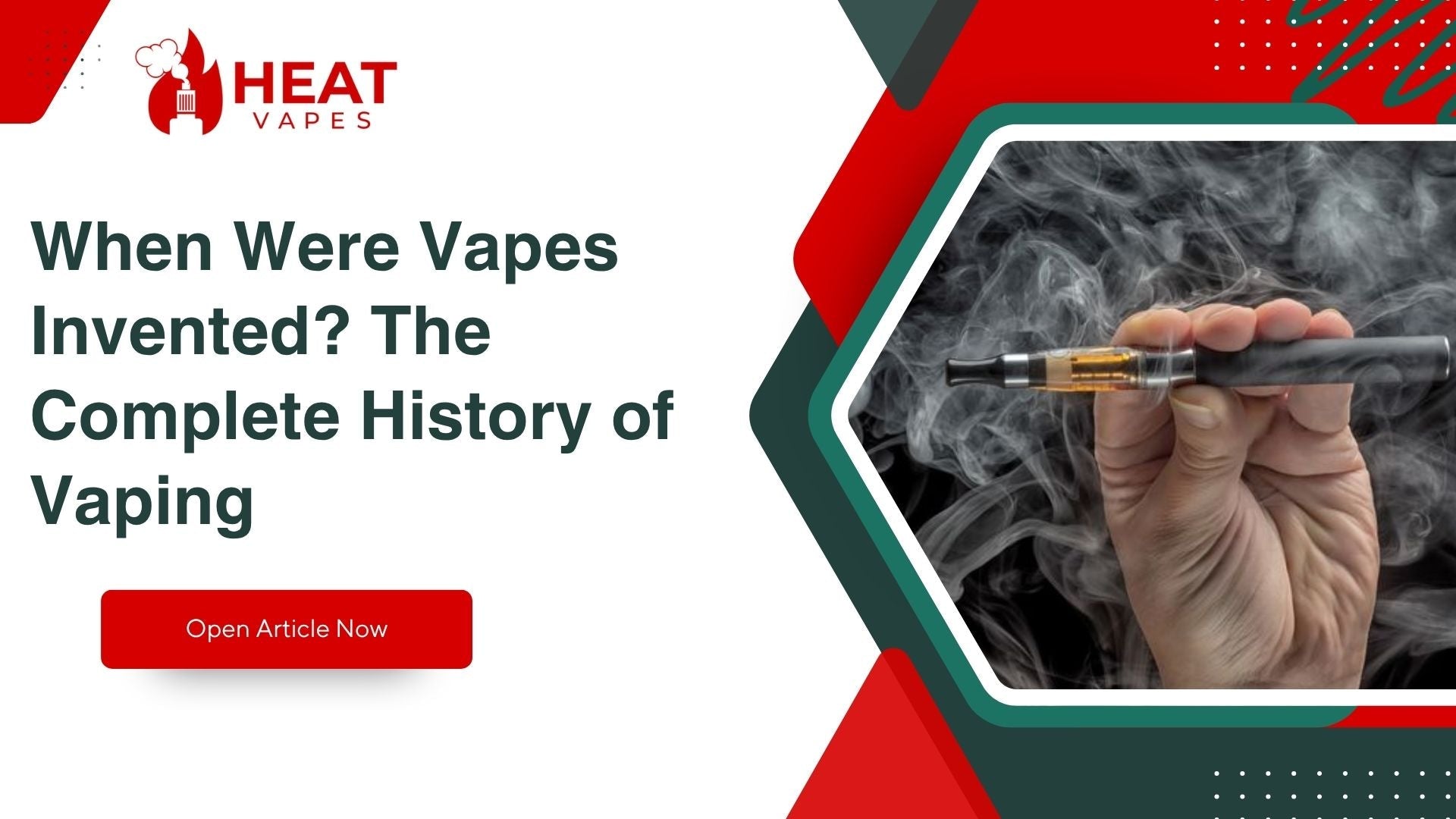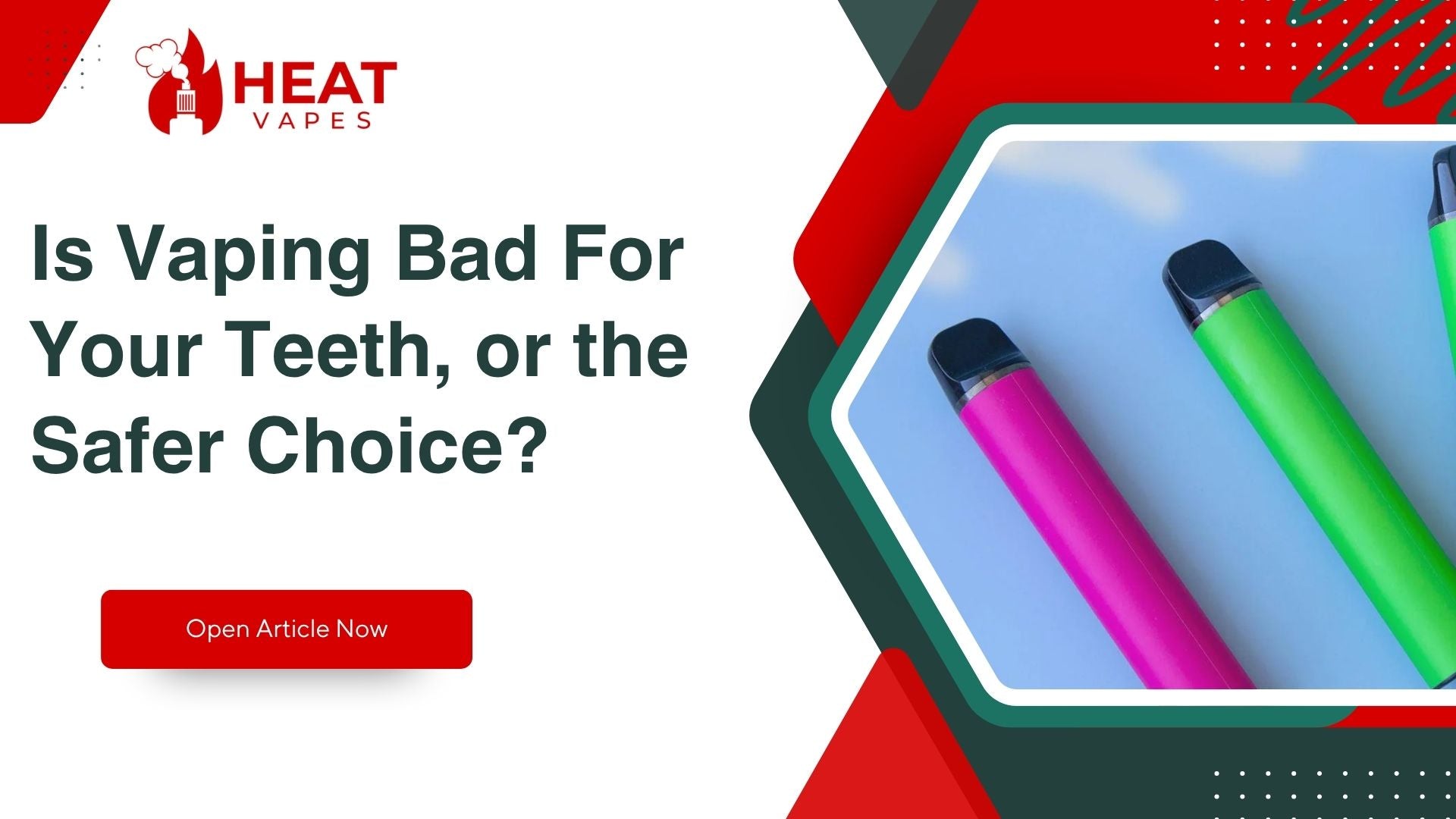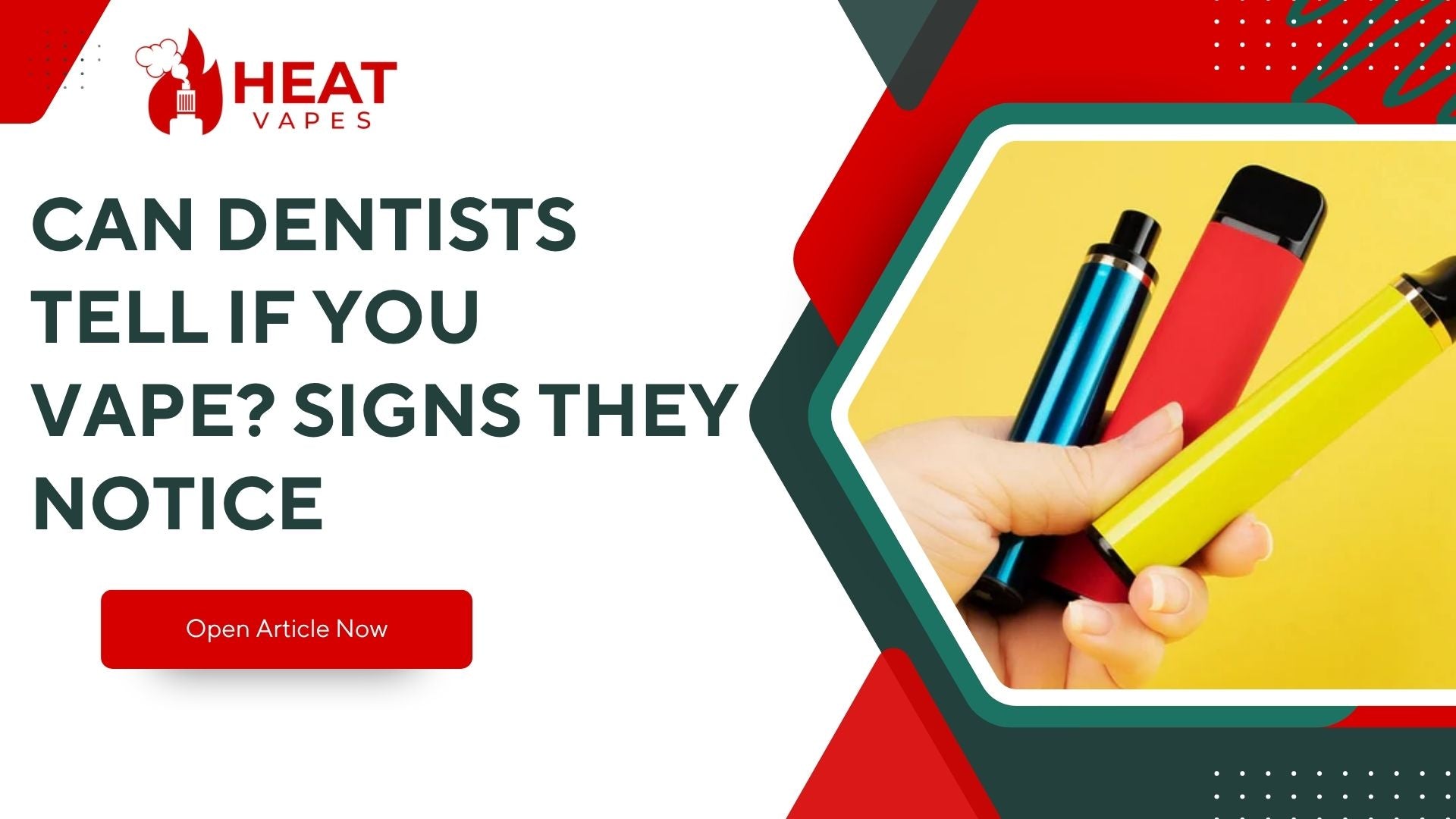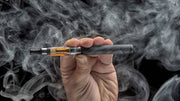
Vaping has become a popular alternative to smoking traditional cigarettes, promising a more controlled experience with various flavors and nicotine levels. However, many users report feelings of fatigue and ( Does Vaping Make You Tired? ) tiredness associated with vaping. In this article, we will explore the science behind vaping and its potential effects on energy levels, providing a comprehensive understanding of how vaping may contribute to feelings of tiredness.
Vaping and Its Composition
Vaping involves the inhalation of vapor produced by an electronic cigarette (e-cigarette) or a vaporizer. These devices heat a liquid solution known as e-liquid or vape juice, which typically contains nicotine, flavorings, and other chemicals. Understanding the components of vaping is crucial to grasping its implications on health and energy levels.
Nicotine: The Primary Active Ingredient
One of the key ingredients in many e-liquids is nicotine, a stimulant that temporarily enhances alertness and concentration. When inhaled, nicotine enters the bloodstream rapidly, impacting the brain and nervous system. While it can provide a short-term increase in energy and mood, it is important to understand its dual nature:
- Stimulant Effects: Initially, nicotine stimulates the release of neurotransmitters, leading to heightened alertness and energy.
- Crash and Withdrawal: As the effects wear off, users may experience a "nicotine crash," leading to fatigue, irritability, and cravings for more nicotine.
How Vaping Impacts Energy Levels
1. Immediate Stimulation Followed by Fatigue
Users may feel a boost in energy shortly after vaping due to nicotine's stimulating effects. However, this is often followed by a notable drop in energy levels. This phenomenon can create a cycle of dependency on nicotine for energy, contributing to increased feelings of ( Does Vaping Make You Tired? ) tiredness as the body struggles to maintain balance.
2. Sleep Disturbances and Insomnia
Nicotine is known to interfere with sleep architecture, impacting both REM and non-REM sleep stages. Here’s how vaping affects sleep:
- Difficulty Falling Asleep: The stimulating properties of nicotine can delay the onset of sleep, making it harder for users to fall asleep at night.
- Reduced Sleep Quality: Frequent vaping, especially before bedtime, can lead to fragmented sleep patterns and reduced sleep quality. This lack of restorative sleep directly affects energy levels and overall well-being.
- Daytime Fatigue: As a result of poor sleep quality, many users experience prolonged daytime fatigue, making it challenging to stay focused and energized throughout the day.
3. Dehydration and Its Effects
Vaping can contribute to dehydration, as it often irritates the throat and mouth, leading to a reduced sensation of thirst. Dehydration can result in various physiological effects, including:
- Decreased Blood Volume: A reduction in blood volume can lead to decreased oxygen delivery to tissues, resulting in fatigue.
- Cognitive Impairment: Hydration levels are closely linked to cognitive function. Even mild dehydration can impair concentration and increase feelings of tiredness.
4. Respiratory Effects and Reduced Stamina
Inhaling vapor can have detrimental effects on the lungs, which may lead to decreased lung function over time. Some of the issues associated with vaping include:
- Inflammation and Irritation: The inhalation of various chemicals can lead to lung irritation and inflammation, making it harder to engage in physical activities.
- Reduced Oxygen Capacity: Impaired lung function can affect oxygen exchange, leading to a decrease in stamina and an increase in feelings of fatigue during physical exertion.
Psychological Factors Contributing to Tiredness
1. Withdrawal Symptoms
For frequent vapers, withdrawal from nicotine can play a substantial influence in energy variations. When the body grows acclimated to a given quantity of nicotine, unexpected reductions might lead to symptoms like:
- Fatigue
- Irritability
- Difficulty Concentrating
This reliance creates a loop where users may repeatedly smoke to counteract symptoms of withdrawal, thus reinforcing energy fluctuations.
2. Stress and Anxiety
Many folks resort to vaping as a coping method for stress and anxiety. While it may bring momentary respite, the underlying tensions and worry might contribute to persistent weariness. The psychological load of reliance, along with the health concerns of vaping, can worsen feelings of weariness.
Long-Term Implications of Vaping on Energy Levels
While many vapers experience short-term gains in energy owing to nicotine, the long-term ramifications can be drastically different. Recognizing these possible implications is vital for making educated choices regarding vaping.
1. Chronic Lung Damage
Research has revealed that long-term vaping might lead to chronic lung difficulties, which are connected with constant weariness due to:
- Reduced Capacity for Oxygen Uptake: Ongoing deterioration affects the lungs' ability to give vital oxygen to the body resulting in a sensation of exhaustion and diminished stamina over time.
2. Impact on Physical Health
Long-term vaping may also contribute to various health concerns, which might indirectly decrease energy levels:
- Cardiovascular Strain: Nicotine can lead to increased heart rate and blood pressure, which can, over time, affect overall cardiovascular health. Poor cardiovascular health can translate to lower energy levels and decreased endurance.
- Potential for Addiction: The addictive nature of nicotine means that users may find themselves continuously reaching for their device, detracting from productive activities and leading to increased fatigue due to lack of engagement in regular physical or mentally stimulating exercises.
3. Mood Disorders
There is a correlation between nicotine use and mood disorders such as anxiety and depression. Fluctuating mood levels can exhaust emotional resources, leading to fatigue:
- Cycle of Fatigue and Dependence: Users reliant on nicotine may find themselves participating in repeated vaping sessions to regulate mood swings, repeating a cycle that leaves them feeling fatigued. .
Addressing Tiredness Related to Vaping
1. Awareness and Education
Understanding the impact of vaping on energy levels is vital. Education on nicotine's addictive characteristics and its influence on sleep, hydration, and lung health can empower users to make educated decisions regarding their vaping behaviours.
2. Gradual Reduction of Nicotine Intake
For those encountering ( Does Vaping Make You Tired? ) tiredness associated with nicotine use, a gradual reduction strategy may be beneficial. Slowly decreasing nicotine levels can mitigate withdrawal symptoms while allowing the body to adjust, potentially reducing fatigue:
- Switching to Lower Nicotine E-liquids: Gradually moving to e-liquids with lower nicotine concentrations can help ease the transition.
3. Hydration and Nutrition
To counteract dehydration and fatigue, individuals should focus on staying hydrated and maintaining a balanced diet:
- Increase Water Consumption: Drinking adequate water can help combat the dehydrating effects of vaping.
- Nutrient-rich Diet: Including meals strong in vital vitamins and minerals helps enhance overall energy levels.
4. Prioritizing Sleep Hygiene
Improving sleep quality is vital in countering symptoms of weariness. Practicing excellent sleep hygiene can have major benefits:
- Establishing a Routine: Going to bed and waking up at the same time each day can improve sleep consistency.
- Creating a Restful Environment: A dark, cool, and quiet room conducive to sleep can significantly enhance sleep quality.
5. Positive Alternatives
Consider researching alternatives to vaping to alleviate stress and anxiety. Engaging in physical activities, practicing mindfulness, or pursuing hobbies can lead to increased mood and energy levels without the dependency on nicotine.
In conclusion, while vaping may give some initial excitement owing to nicotine's effects, the risk for tiredness ( Does Vaping Make You Tired? ) associated to its usage is high.
The pattern of energy surges and falls, together with implications on sleep, hydration, and overall health, can leave many users feeling weary.
Educating oneself about these variables and researching healthier options might help alleviate weariness due to vaping.
Maintaining a balanced lifestyle is vital for general well-being and energy management. If you or someone you know is experiencing with exhaustion connected to vaping habits, getting support from healthcare experts may give vital insights and aid.
Why Does Vaping Make You Sleepy?
Vaping has surged in popularity as an alternative to traditional smoking, providing users with a variety of flavors and customizable nicotine levels. However, many individuals report feelings of sleepiness and fatigue after vaping.
In this post, we will go into the scientific reasoning for why vaping could lead to drowsiness, studying its influence on the body, brain, and general health.
Understanding Vaping: The Basics
Before we explore the reasons behind sleepiness, it's essential to understand what vaping entails. Vaping typically involves inhaling vapor produced by an electronic device that heats up e-liquid, a mixture of nicotine, flavoring agents, and other chemicals.
The Role of Nicotine in Vaping
Nicotine is the primary psychoactive substance found in most e-liquids. It is known to have stimulating properties, often leading to increased alertness and concentration. However, the effects of nicotine are complex and can fluctuate dramatically based on usage patterns.
1. The Initial Stimulating Effect of Nicotine
At first glance, one might wonder how a stimulant like nicotine can lead to feelings of sleepiness. When inhaled, nicotine quickly enters the bloodstream and reaches the brain. This rapid delivery can initially enhance cognitive function and energy levels. However:
- Dopamine Release: Nicotine triggers the release of dopamine, a neurotransmitter linked to pleasure and reward, providing a short burst of energy and focus.
- Subsequent Crashing: After the initial stimulant effects wear off, users often experience a “crash,” leading to fatigue and lethargy.
2. Sleep Disruption from Vaping
The Influence of Vaping on Sleep Patterns
Vaping can significantly disrupt sleep quality. While many users may vape to unwind, the effects of nicotine can be counterproductive.
- Delayed Sleep Onset: The stimulating effects of nicotine can make it challenging to fall asleep, particularly if vaping occurs close to bedtime.
- Reduced REM Sleep: Vaping can interfere with the normal sleep cycle, reducing the amount of REM (Rapid Eye Movement) sleep. REM sleep is crucial for replenishing energy and cognitive performance, and its loss can contribute to sensations of weariness during the day.
Long-Term Consequences on Sleep Health
Chronic users who vape before bed may find themselves enduring chronic weariness owing to interrupted sleep patterns. Studies demonstrate that nicotine dependency can lead to sleep difficulties, hurting general well-being.
3. Dehydration and Its Impact on Energy Levels
Vaping may lead to dehydration, which is often overlooked as a cause for sleepiness.
- Dry Mouth and Throat: The vapor produced during vaping can cause dryness in the mouth and throat, leading to an uncomfortable sensation that may cause users to consume less water, ultimately resulting in dehydration.
- Fatigue from Dehydration: Dehydration can cause several physical symptoms, including fatigue, headaches, and cognitive impairment. Reduced hydration levels reduce the overall function of the body's systems, including those responsible for maintaining energy levels.
4. Psychological Factors Contributing to Fatigue
Mood Changes and Vaping
The association between vaping and mood fluctuations can also effect energy levels. Nicotine acts as a mood booster for many but can contribute to oscillations that lead to sensations of ( Does Vaping Make You Tired? ) tiredness:
- Cycle of Dependency: Users may vape to ease tension or anxiety, which can lead to lethargy when the benefits subside. This reliance creates a loop where the user feels weary, vapes for a boost, and then collapses again.
- Mental Fatigue: The ongoing need to regulate nicotine urges can contribute to mental tiredness ( Does Vaping Make You Tired? ). Users may find themselves distracted with considerations about when to vape, resulting to diminished cognitive energy.
5. Respiratory Effects of Vaping
Impact on Lung Health and Oxygen Supply
Vaping can have adverse effects on lung function, which can contribute to feelings of tiredness:
- Inflammation of Lung Tissue: The inhalation of vapor can irritate the lungs, leading to inflammation and compromised lung function. This can decrease the efficiency of oxygen exchange in the bloodstream, which is essential for maintaining energy levels.
- Reduced Exercise Capacity: Impaired lung function can limit participation in physical activities. A sedentary lifestyle can contribute to feelings of fatigue and sluggishness.
6. Considerations for Vaping Habits
Identifying Factors Leading to Sleepiness
To mitigate the feelings of sleepiness related to vaping, it is essential to recognize individual habits and patterns:
- Timing of Vaping: Avoiding vaping close to bedtime can positively impact sleep quality. Establishing a clear boundary regarding when to vape may help users achieve better rest.
- Choosing E-liquids Carefully: Opting for nicotine-free or lower-nicotine alternatives can help reduce reliance on nicotine while still allowing for a pleasurable vaping experience.
IVG 2400 Not Working? How To Fix it ? Method 2025





